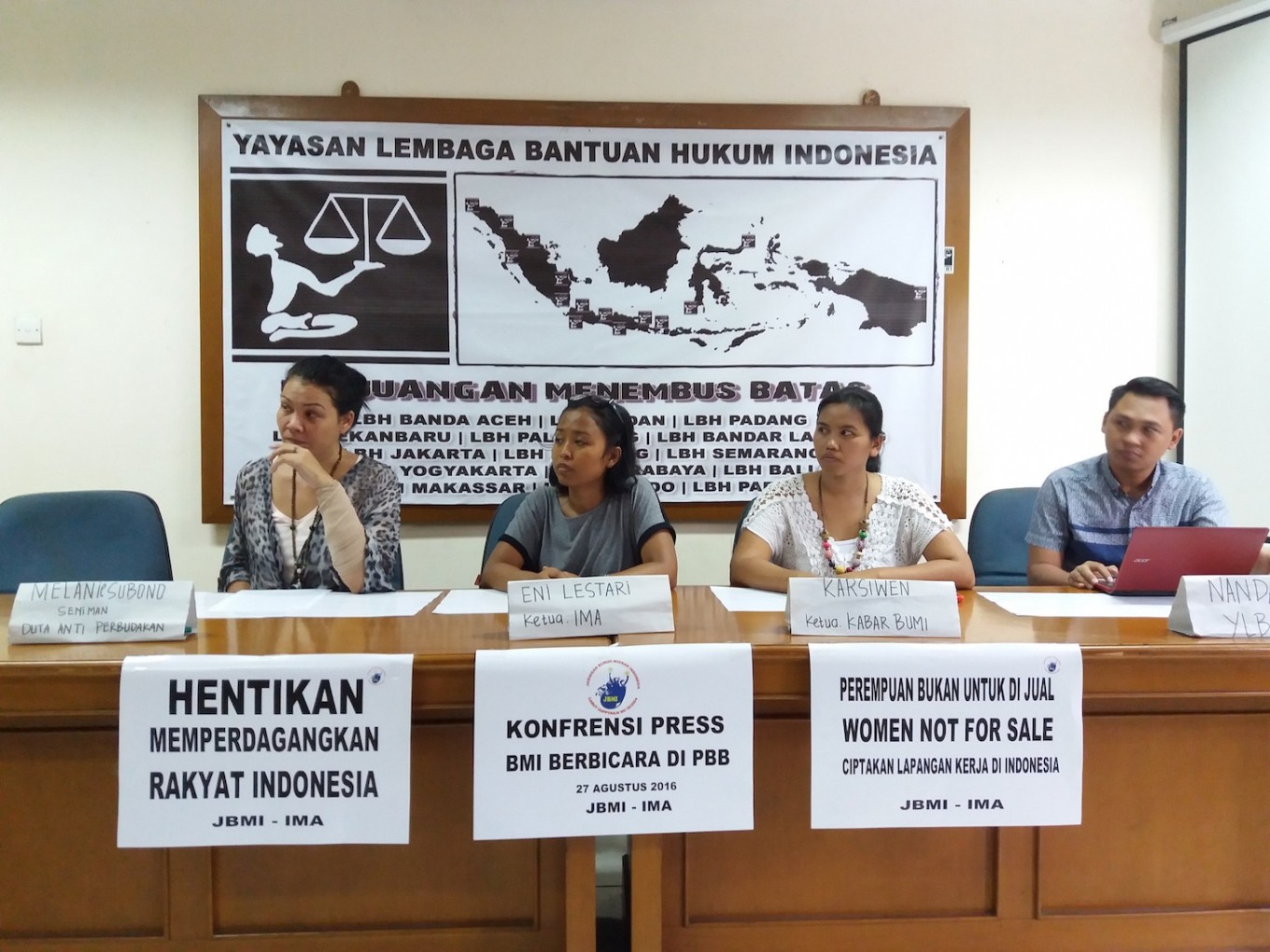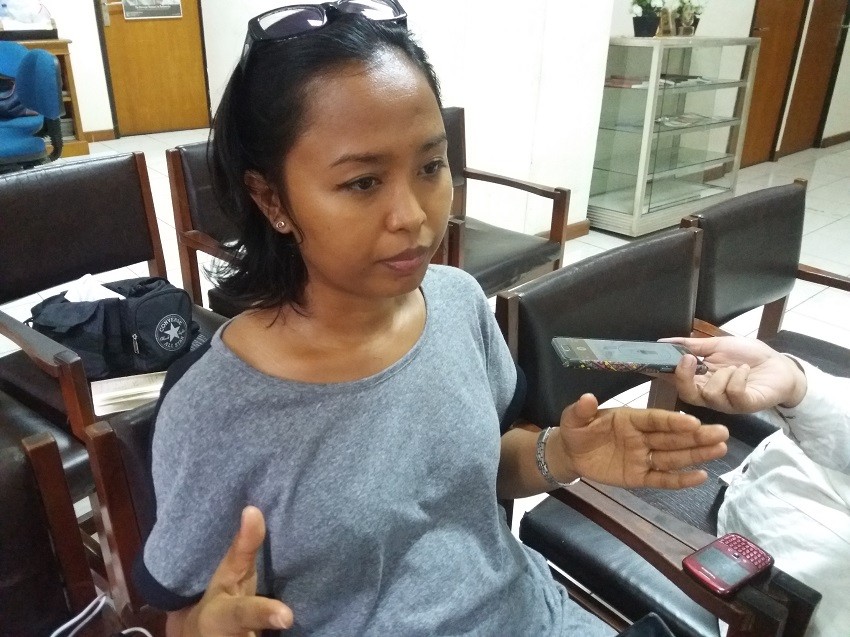Popular Reads
Top Results
Can't find what you're looking for?
View all search resultsPopular Reads
Top Results
Can't find what you're looking for?
View all search resultsUN speaker Eni learns migrant workers’ rights the hard way
Change text size
Gift Premium Articles
to Anyone
 Set for UN: Chairperson of the International Migrants Alliance (second left) Eni Lestari, speaks at a press conference at the Indonesian Legal Aid Foundation (YLBHI) on Aug. 27. She is flanked by musician-cum-activist Melanie Subono (left), migrant worker Karsiwen (second right) and a lawyer from the YLBHI Wahyu Nandang Herawan. (JP/wnd)
Set for UN: Chairperson of the International Migrants Alliance (second left) Eni Lestari, speaks at a press conference at the Indonesian Legal Aid Foundation (YLBHI) on Aug. 27. She is flanked by musician-cum-activist Melanie Subono (left), migrant worker Karsiwen (second right) and a lawyer from the YLBHI Wahyu Nandang Herawan. (JP/wnd)
E
ni Lestari, a former Indonesian migrant domestic worker, never dreamed that one day she would deliver a speech at the UN Summit for Refugees and Migrants.
It was not her first time speaking at a UN event or discussion, but it will be her first time speaking in front of 1,900 people, including presidents and prime ministers of UN member countries, UN officials, academics and religious leaders. It will be an all-day event on Sept. 19 at the UN headquarters in New York.
She will address an opening speech in the summit, speaking about humanizing migrant domestic workers’ working conditions.
Growing up in Kediri, East Java, Eni dreamed of going to college. However, the 1997-1998 Asian financial crisis shattered her reverie. She did not come from a wealthy family.
“All I was thinking about at that time was to make money to continue my studies because my parents could not pay for it,” Eni said.
An offer to work as a domestic worker in Hong Kong then came from her friend who had signed to work there. With her parents’ permission and help from a middleman, she was registered to work in Hong Kong.
However, she left for Hong Kong with minimal knowledge of the local language and very few housekeeping skills, while not knowing her rights, social conditions and culture of the country where she would work.
Labor recruitment agencies (PJTKI) told her nothing.
She thought it was OK that her passport was taken away by the people who picked her up in the airport. She did not protest working 18 hours a day, did not make a fuss about being underpaid and thought having no days off was the norm.
Although she was not aware that her rights were being violated, one day she had enough. She left her employer, but it was only later that she came to the realization that working conditions must change.
Six months after she left her job, she stayed in a migrant worker shelter. She met with others and they shared their experiences working as migrants in many countries. From there, she grew into an activist and organized others.
Now, she is chairwoman of the International Migrants Alliance.
“I want to send a message to all countries to change the way they think about migrant workers. They only think about profit, forgetting our rights,” Eni said.
 Former Indonesian migrant worker Eni Lestari will give a speech on United Nations Summit on Refugees and Migrants at the UN headquarters in New York on Sept. 19. She will raise issues on the challenges faced by migrant workers.(JP/Winda Ayu Charmila)
Former Indonesian migrant worker Eni Lestari will give a speech on United Nations Summit on Refugees and Migrants at the UN headquarters in New York on Sept. 19. She will raise issues on the challenges faced by migrant workers.(JP/Winda Ayu Charmila)
Migrant workers contribute the largest foreign exchange reserve to the government after oil and gas. In 2014, the contribution was US$8.4 billion.
Eni went on to say that she wanted to remind governments all over the world that migrant workers were human beings and should be treated properly. “We are neither slaves nor goods,” she said.
Wahyu Nandang Herawan, a public attorney with the Indonesian Legal Aid Foundation (YLBHI) told The Jakarta Post that the government should ensure that migrant workers were guided, protected and supervised when they were abroad.
“The government should be able to provide necessary information to migrant workers […] and monitor them when they are abroad so that if they get into trouble, the government can directly assist them,” Wahyu said.
In 2015, Indonesia sent 275,736 migrant workers abroad, 39 percent of which around were junior high school graduates, while 32 percent of them were only elementary school graduates. It has been reported that around 6 million Indonesians are working abroad. (wnd/evi)









